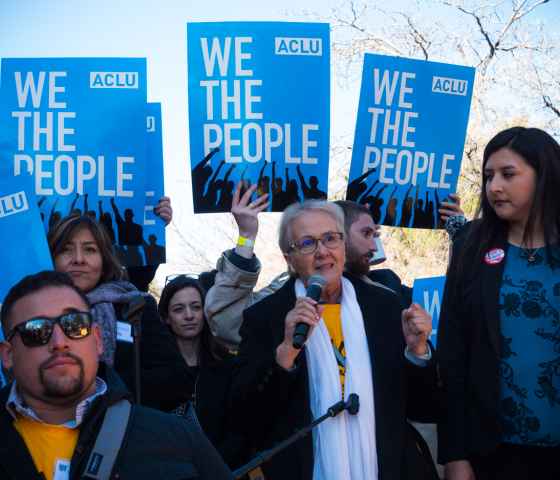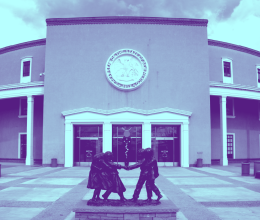More than 25 years ago I made the difficult decision to cross the border and emigrate to this great country. It’s been one of the best decisions I ever made, but it came with a difficult price tag.
Although I was relieved to have finally made it to the United States, I was alone, without my friends and family, and unable to leave the city limits of El Paso. I was undocumented and couldn’t risk traveling anywhere that required me to pass through a Customs and Border Protection (CBP) interior checkpoint or port of entry.
"I know that the increased militarization of border communities keeps so many residents from their family and support networks. "
When my mother passed away I couldn’t even travel to Mexico say goodbye to her or attend her funeral. That is a painful weight I will always carry in my soul.
I know that I am not alone in this pain.
Federal regulations give U.S. Customs and Border Protection (CBP) authority to operate within 100 miles of any U.S. external boundary, including the southern border. Border Patrol operates more than 30 permanent checkpoints -- often complete with surveillance cameras and police dogs -- across Texas, New Mexico, Arizona, and California. They also operate roving patrols throughout communities and routinely pull over and harass residents. Undocumented families live in fear that they will be stopped by Border Patrol agents and avoid going through checkpoints altogether.
Though I am now a citizen of the United States, and finally enjoy the freedom to travel and visit with my daughter and grandchildren, I know that the increased militarization of border communities keeps so many residents from their family and support networks.
This type of de facto family separation is less visible than the family separation that occurred under President Trump, but it is real. The harm people endure -- much like the harm caused by Trump’s policy of separating migrant children from their parents -- is the result of an approach to the border that is focused on militarization and punishment.
"It’s past time we eliminate interior border checkpoints and drastically reduce the number of Border Patrol agents in the region."
A militarized approach to the border not only harms undocumented people, but it also harms entire communities. Border Patrol agents racially profile and harass people of color across the region. They drive recklessly through our communities and fatally wound our neighbors in vehicle pursuits. CBP’s use of intrusive surveillance technologies erode border residents’ privacy rights and force them to live under the constant gaze of the federal government.
It’s past time we eliminate interior border checkpoints and drastically reduce the number of Border Patrol agents in the region. Residents who were born in this country and born elsewhere all deserve to feel safe in the communities they call home and to move freely without fear of harassment by Border Patrol. Instead of continuing to militarize the border region, the federal government should lead with compassion and embrace a humane approach to the border.





